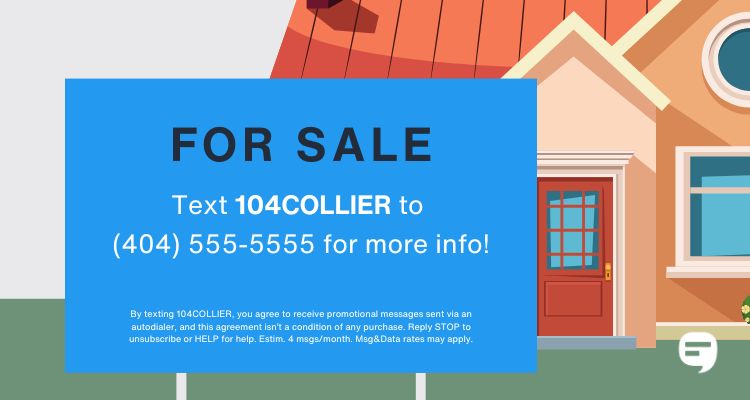5 essential SMS marketing compliance guidelines for real estate agents
Get a quick overview of the five laws and rules of real estate SMS marketing that you can’t ignore.
You know SMS marketing gets results in real estate, but do you know the texting laws you need to follow?
Violating them can not only lead to fines but a drop in your business’ reputation as well.
I’ll give you a breakdown of the five essential laws and guidelines every real estate agent should know.
- Get every contact’s permission before texting them.
- Include a call-to-action in your opt-in method.
- Send a confirmation message to new contacts.
- Don’t send prohibited content.
- Don’t text contacts during quiet hours.
📄 Note: This advice in this guide is for informational purposes only and is neither intended as nor should be substituted for consultation with appropriate legal counsel and/or your organization’s regulatory compliance team.
1. Get every contact’s permission before texting them
To comply with the Telephone Consumer Protection Act (TCPA) of 1991, it’s crucial to get express written consent (or permission) from people before sending them promotional text messages.
The way you obtain permission is your opt-in method. With an opt-in method in place, your contacts will know what kinds of messages they’ll receive, and you’ll have documentation that they gave their consent.
Some of the most popular opt-in methods are:
💡 See what these opt-ins look like for your contacts and how to set them up in our opt-in methods guide.
2. Include a call-to-action in your opt-in method
Every time you invite someone to join your texting list, you need to include a TCPA-compliant call-to-action (CTA).
Your CTA should include:
- The purpose of your SMS campaign
- How often you plan to text them
- A disclaimer about potential message and data rates charges
- Opt-out instructions
You should also list your terms and conditions, privacy policy, and customer care contact information.

3. Send a confirmation message to new contacts
After contacts sign up for your texting list, you must send them a compliance message to reiterate the terms they’ve agreed to when they subscribed.
CTIA, a trade association for the U.S. wireless communications industry, recommends adding specific details to your message:
- Name of the company that’s sending the messages
- Message frequency
- Disclaimer that message and data rates may apply
- How to opt out (ex. “Reply STOP to unsubscribe”)
- How to get help (ex. “Call 555-555-5555 if you have questions”)
💡 When you send texts with SimpleTexting, you can send a compliance message for free. We’re the only SMS service providers to offer them at no extra charge.
Test drive SimpleTexting’s real estate texting app free for 14 days. We’re here seven days a week to answer your questions about our platform, texting rules, SMS marketing, and more.
4. Don’t send prohibited content
The CTIA also has guidelines for what kind of SMS content is off-limits for businesses and organizations.
These prohibited text message topics include:
- Sex
- Hate
- Alcohol
- Firearms
- Tobacco
This means that including related information to any of these topics in your CTA or message could result in an immediate ban by wireless carriers.
These topics are uncommon in real estate text messages, but they’re worth mentioning in case you want to promote events that include alcoholic beverages.
If you do need to send texts about alcohol or tobacco, make sure you verify your contacts’ age and use a registered local number.
5. Don’t text contacts during quiet hours
Avoid sending promotional texts during what the TCPA calls “quiet hours” — before 8:00 a.m. and after 9:00 p.m. (local time of the recipient).
This doesn’t necessarily apply to all texts, though. If a lead or client is texting you outside of quiet hours and needs logistical information from you (like an address) or answers to their questions, you may be able to send it to them.
All of these guidelines will help you stay compliant while building solid relationships with your audience through SMS marketing. If you’d like to dig deeper, check out our comprehensive text message compliance guide.
📌 For more real estate text marketing tips from our SMS experts, check out our How to Start guide.